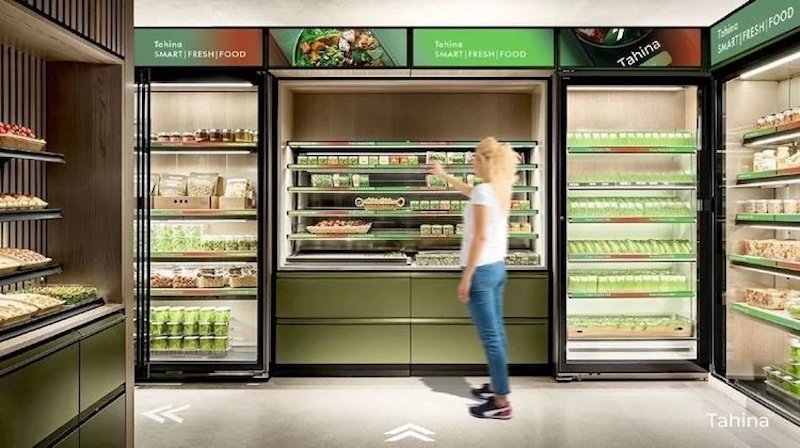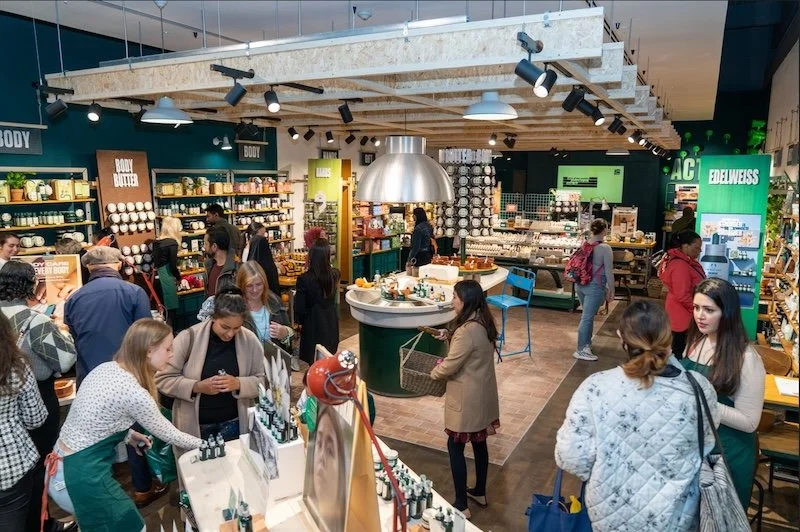Visually impaired consumers faced with major accessible food packaging challenges in supermarket aisles
Launched on World Sight Day, research commissioned by Roland DG, a provider of digital printing solutions, reveals that millions of visually impaired people face a daily challenge of navigating supermarket aisles due to the inconsistent and sparse use of accessible packaging.
80% of food brands admit that they do not incorporate Braille or tactile symbols across all of their packaging, leaving visually impaired individuals unable to understand what they are purchasing and consuming.
The research - which surveyed 500 senior packaging decision makers across Europe - found 70% of brands also fail to use modern digital solutions, like NaviLens or QR codes, on all their products. This inconsistency creates serious challenges, especially for consumers with allergies or dietary restrictions who rely on accessible labelling to make safe choices.
Lucy Edwards, disability activist and social content creator, says: “Accessible packaging is more than just a convenience - t’s a lifeline for people like me who are visually impaired.”
“Having clear, tactile, or scannable information on packaging can mean the difference between safety and uncertainty. Brands that embrace this printing technology are not only leading the way in inclusivity but are also setting a standard for others to follow.”

93% of food packaging decision-makers surveyed expressed their willingness to invest in accessible packaging solutions, with 49% ready to allocate between £50,000 to £100,000 to make this transition.
However, 93% of food brands admit they face significant barriers in making these changes.
The most cited challenge is the high cost, with 51% of decision-makers pointing to financial constraints as a major hurdle. The complexity of packaging regulation has deterred 38% of brands, while 16% admit they are unsure where to begin on their journey towards accessible packaging.
Julianne Ponan, Founder of Creative Nature, who suffers from anaphylaxis and created the company to cater for all top 14 allergens so more people can enjoy meals together, says: “We believe that everyone deserves to know exactly what they’re consuming, especially when it comes to allergens.”
“Working with Roland DG has allowed us to learn how to make our packaging more accessible, which is a key part of our mission. It’s vital that packaging decision makers prioritise these solutions because inclusivity isn’t just a luxury - it’s essential for ensuring the future safety of all consumers.”
To overcome these barriers, food brands are increasingly looking for government intervention. 34% believe that accessible packaging should become a legal requirement, urging policymakers to create clear, consistent regulations that would guide brands through the necessary changes.
Stephen Davis, EMEA Marketing Director & UK President at Roland DG, says: “The food industry is at a crossroads. We have the technology and the willingness to make packaging accessible, but brands need guidance.”
“Accessible packaging is not just a moral imperative, it's a critical business opportunity to reach more of your audience. Digital printing technologies offer a scalable solution that can help brands meet the needs of visually impaired consumers and ensure that everyone can understand what they are eating.”
2024 RTIH INNOVATION AWARDS
Inclusivity is a key focus area for the sixth edition of the RTIH Innovation Awards, which is now open for entries.
The awards, sponsored by CADS, 3D Cloud, Brightpearl by Sage’s Lightning 50, and Retail Technology Show
2025, celebrate global tech innovation in a fast moving omnichannel world.
Key 2024 dates
Friday, 25th October: Award entry deadline
Tuesday, 29th October: 2024 shortlist revealed
30th October-6th November: Judging days
Thursday, 21st November: Winners announced at the 2024 RTIH Innovation Awards ceremony, to be held at RIBA’s 66 Portland Place HQ in Central London.






























Continue reading…